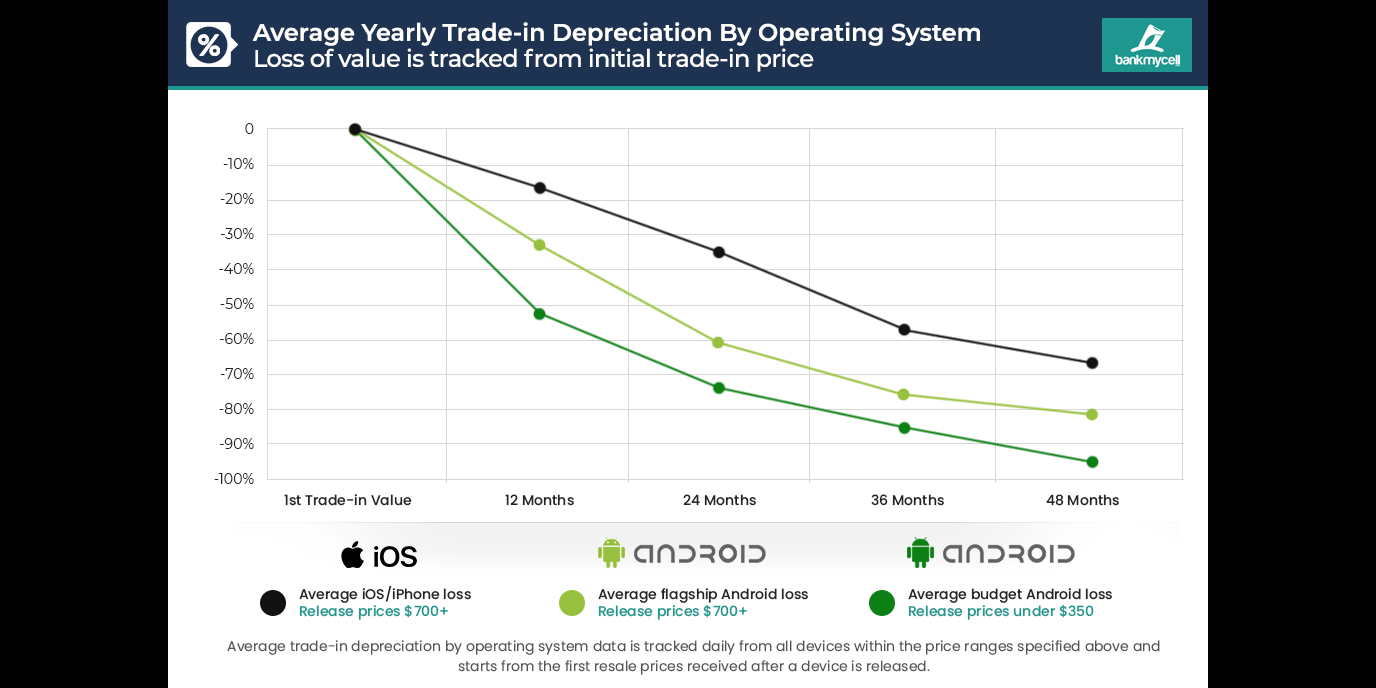
New data provided by a trade-in website shows that an iPhone trade-in gets you twice as much as trading in a comparable flagship Android smartphone a year after you bought it. Both comparisons are calculated as a percentage of the purchase price, to ensure that they are like-for-like …
The difference tails off slightly at two years, but the used iPhone is still worth very much more than the used Android phone.
Trade-in tracker website BankMyCell ran the numbers.
The data below quotes the trade-in depreciation from the initial buyback price for a used iOS or Android device priced at $700 or over, then tracks its decline yearly.
In one year, the current average depreciation of a new iPhone’s trade-in value is -16.70%, compared with Android’s -33.62%.
In two years, the current average depreciation of a new iPhone’s trade-in value is -35.47% compared with Android’s -61.50%.
After four years, the gap begins to close, with iPhones losing an average of -66.43% of their initial buyback value, compared with Androids -81.11%.
The difference grows even starker when you compare the resale value of brand-new, boxed, unused devices.
Nine months after the Samsung Galaxy S20 Ultra release, the buyback price was -64.71% of its original retail value. By comparison, in the same nine-month timespan from release, the iPhone 11 Pro Max had lost -32.22% from its original retail value.
The report goes on to compare comparable Apple and Samsung models.
iPhone 11 lost -12.84% of its trade-in value in the whole of 2020, compared with the Galaxy S20 losing -34.73% in only nine months.
iPhone 11 Pro lost -21.31% of its trade-in value throughout 2020, compared with the Galaxy S20+ losing -30.59% in only nine months.
iPhone 11 Pro Max lost -15.96% of its trade-in value in the whole of 2020, compared with the Galaxy S20 Ultra losing -36.30% in only nine months
I’ve long argued that comparing Apple product pricing with cheaper competitor products makes no sense unless you also factor in resale values.
FTC: We use income earning auto affiliate links. More.


Comments